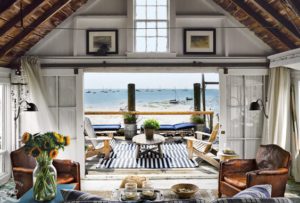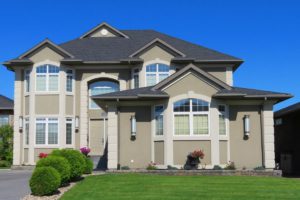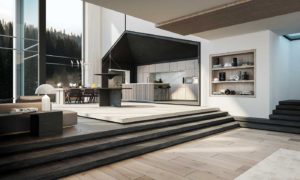Get profit from property renovation

COVID has been a very odd experience for lots of businesses. Some have gone under, some have struggled to stay afloat but are hanging on by their fingertips, and others are thriving.
Against all predictions, real estate in Australia is one of the most resilient business sectors.
“Australian house prices have become even more costly,” according to ABC News, “with coronavirus lockdowns across NSW, Victoria, and the ACT having virtually no effect on property values.”
The most significant annual price increases were seen in Darwin, Canberra, and Hobart (up at least 22pc) Melbourne’s price increase was the slowest (up 13pc in the past year).
Property in the region (up 22pc) Capital cities were outpaced (up 18pc).
According to the most recent CoreLogic data, the nation’s median house price increased by 1.5 percent last month (to $666,514).
Houses and flats in practically every major city have risen in price, with Hobart (+2.3%), Canberra (+2.2%), and Brisbane (+2%) seeing the most significant increases.
Other capital cities, such as Adelaide (+1.9%), Sydney (+1.8%), and Melbourne (+1.2%), also had significant price increases. Darwin, on the other hand, was an exception, with prices down 0.1 percent last month.
But house prices alone do not tell the entire story behind the pandemic fallout.
Renovations on the property are suffering from a rise in the cost of building materials because of price increases in transportation and acquisition. Most of this is because of the labour shortage due to quarantine restrictions and the ban on international travel.

The price of containers for shipping freight by sea has increased from around $3000 to over $20,000 in some cases. Businesses cannot absorb this and are passing it on to builders and construction companies.
The cost of basic building materials like floor paint, dry-walling, and timber ceiling brackets, for example, have risen way above the inflation rate.
Proactive property management firms are scrabbling around trying to find the cheapest solutions, but are being hampered not just by the material costs but also the shortage of labour which is hitting the cost of hiring tradies – if they can book them at all.
Ultimately, these costs are passed on in property management fees to the renter. Domain claims that “The national median rental asking price for a residence has risen to $471 per week, a 4 percent increase in the year to March 2021.
Experts claim the country’s rental market has staged an “amazing” recovery: rates have been steadily rising since last year, as the increase of tree-changers and working from home during the epidemic drove residents to all regions of the country.
Several smaller cities have also seen a shift in the tide, with substantial increases in rents after years of stagnation.”
As a result – what does this all mean for real estate and home renovations from now on?
The pandemic has been a wake-up call to many people who lived in cities and other urban areas. Many people are already dissatisfied with concerns like air quality and a lack of outdoor space, and COVID has pushed many to relocate to new residences distant from the city.
Folk have discovered that they can work as well from where they live as they could by commuting into an office – and many companies have realised that their staff can be more productive in their homes than sitting around drinking coffee and chatting on the office stools in the city HQ.
Meeting room furniture Melbourne style can get pricey, so not having to rent or equip offices in expensive city locations is another plus for those companies who think they can do without.
People seem to be prepared to pay a premium for more remote living properties and want to spend money on renovations to make them as comfortable as possible.
Installing studies and offices, either inside the house or in outbuildings, and even sheds is becoming a big trend.
The kind of renovations being done goes way beyond just home features, and cosmetic improvements house wise. People want a fully functioning home to operate from, often with mansion features and all the trimmings.
Buyers in cities are actively looking for renovation properties because the prices of those which are finished with new home features are becoming too expensive to consider. For sellers of below-par properties looking for buyers, it is the perfect time to put a property on the market.
From a buyer’s perspective, being able to start from scratch and create functional spaces which double for both work and living, mean not having to compromise so much.
It’s also the ideal time to install renewable, independent utilities like rainwater collection systems and solar panels, as well as good thermal insulation and HVAC units.
A major incentive for these types of improvements to homes is the possibility of tax incentives in the future, and being able to sell spare capacity back to the grid.
Another trend which is becoming apparent is that of several generations living on one property. Extended families co-housing and clubbing together to buy a property that none could afford individually makes sense.
This trend has led to a recent phenomenon in “ordinary” homes – that of recreational and entertainment rooms in remodelled basements and attics and roof spaces.
Breadwinners want their families around but discovered that children and teenagers doing what children and teenagers do is not necessarily conducive to that vital phone call or Zoom meeting.
Garage to home gym conversions, home libraries, in-home cinemas and theatres, bars, golf simulators and even climbing walls are becoming almost normal in many homes.
Details in property renovation and interior design have also become more important to people working from home.
Lighting and sound are two major considerations along with multipurpose furniture built in so that families can hide it away when not in use.
Creating a calm and efficient work environment in a transformed bedroom or purpose-built office space away from the house – say, in the garden – are definitely the new black with property renovation in a post-COVID world.








